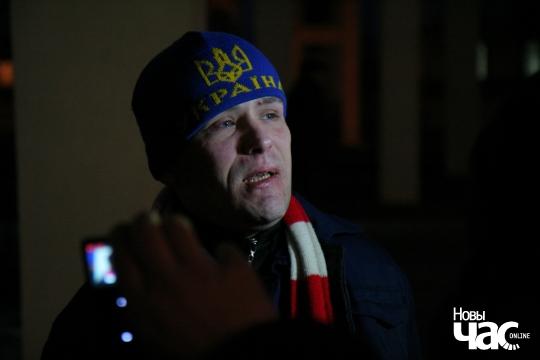Vasil Parfiankou: I spent only 29 days in the colony’s residential area
Former political prisoner Vasil Parfiankou, who has been released after serving his sentence in penal colony No. 9 in Horki, told about the conditions of detention in the colony and about the preventive supervision he has been subjected for a period of 1 year.
During his stay in the colony, Vasil Parfiankou received 39 penalties for various violations of the regime and before the release, on November 11, the colony hosted a trial, who considered about 40 similar cases. Usually, one case was heard for just 2-4 minutes: a person is invited to the office, his identity is established, then the judge reads out the list of violations and announces the verdict.
Answering the question of whether it is possible to appeal imposed penalties in the colony, the former political prisoner explained that in theory it can be done, however, as petitions and complaints are considered by the man who issues the penalties, it is pretty useless. The prison head gives the inmate a standard runaround that the imposed punishment was perfectly legal. You can write to the Prosecutor's Office or the Department of Corrections, but such complaints rarely get beyond the walls of the colony.
In the Horki prison, inmates have the opportunity to work: there are sewing and wood production, metalworking.
“Over the time, I worked for just 5 days, and spent only 29 days in the residential area, then I was placed in PKT (cell-type premises), and then repeatedly in a punishment cell, but I know that the prisoners employed in the sewing work, for example, received 60 thousand rubles a month on their personal accounts. I could spend the only chance to visit the shop when I was in PKT, something around 300 thousand rubles. What did I buy? Usually fruit, apples, oranges. The store had sausage and cheese. In general, the nutrition in Horki was not so bad, as they say, there were pieces of meat in the porridge,” says Vasil Parfiankou.
It is known that Parfiankou was deprived of visits and parcels from relatives. In the colony, you could only eat well when there were parcels.
Parfiankou says that the state of health care in prison in Horki is very bad. Medicines are practically absent. “When I had insomnia, and I was in such a mental state that I was unable to sleep at night, so I was offered to take valerian and the doctors gave me some pill that did not solve the problem, and when I sometimes fell asleep during the day then I got another penalty. HIV-infected prisoners need special medicines that are given by the Red Cross, but it is very difficult to demand them. But TB patients are kept separately in PKT and in the cells. There were several of them there,” says Vasil Parfiankou.
The punishment cell or solitary confinement in Horki, where Parfiankou spent several months of his term, is a regular cell with 8 beds, with a wooden floor, and the beds are attached to the walls during the day. It is prohibited to lie here during daytime. There is a bench to sit and a table. When it was cold, the cell was heated, but in the morning it was cold.
In the summer of 2012, Vasil Parfiankou was sentenced to six months in a house of detention for violation of the rules of serving preventive supervision, which was imposed on him for taking part in a series of protests of solidarity with political prisoners in 2011. He was arrested on December 5, 2013 after he was convicted under Article 421 of the Criminal Code (“non-compliance with restrictions preventive supervision”). The activist was sentenced to one year of imprisonment in a penal colony under strict regime.


















